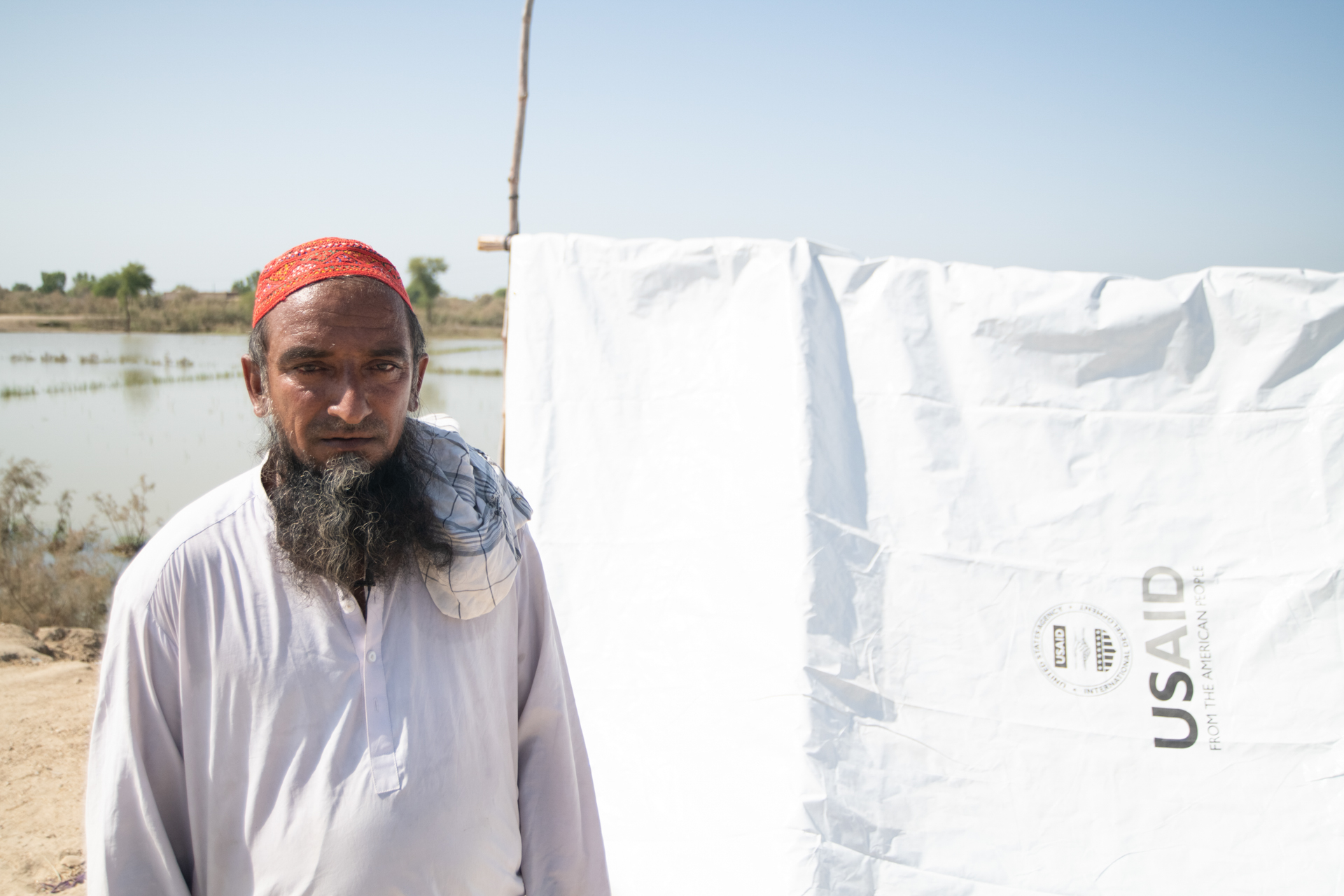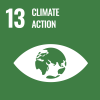Pakistan, 16 November 2023 – One year ago, Pakistan experienced unprecedented floods. Over 33 million people were directly affected, with a staggering 20.6 million requiring urgent humanitarian assistance. The consequences were dire – 7.9 million people were displaced, and over 2 million houses were destroyed.
Although the water has receded, one year later, the scars of the natural hazard remain fresh. Over 1.5 million people are still displaced. The most basic necessities, such as food and shelter, continue to be out of reach for a large portion of the flood-affected population, more than 40 per cent of whom rely on humanitarian aid for survival.
While the immediate concerns of food, shelter, and water have been largely documented, climate anxiety among flood-affected communities across Pakistan has failed to make headlines.
Although climate anxiety is a newly coined term, it reflects a distress that has long been felt by these communities.
Amidst the increasing threat of climate change, floods in Pakistan have grown more frequent, resulting in some communities facing an unending cycle of displacement and despair. For these communities, the fatigue caused by climate-change-induced disasters has begun to take its toll. They are not only exhausted but also more anxious than ever about the potential threat of cascading disasters.
Men, women and children alike in these flood-affected areas are living in fear of an uncertain future. They grapple with the harsh reality that they lack the necessary preparations to face another flood, and they have no clear plans for shelter should their already fragile homes become uninhabitable.
These communities are in a constant struggle to meet their basic survival needs, and the anxiety about recurrent climate-related disasters adds an additional layer of uncertainty to their lives.
Despite contributing very little to the current global climate breakdown, Pakistan remains one of the countries most vulnerable to the effects of climate change. As the nation grapples with the devastating impact of climate change, climate anxiety will likely continue to rise, especially among the most vulnerable populations.
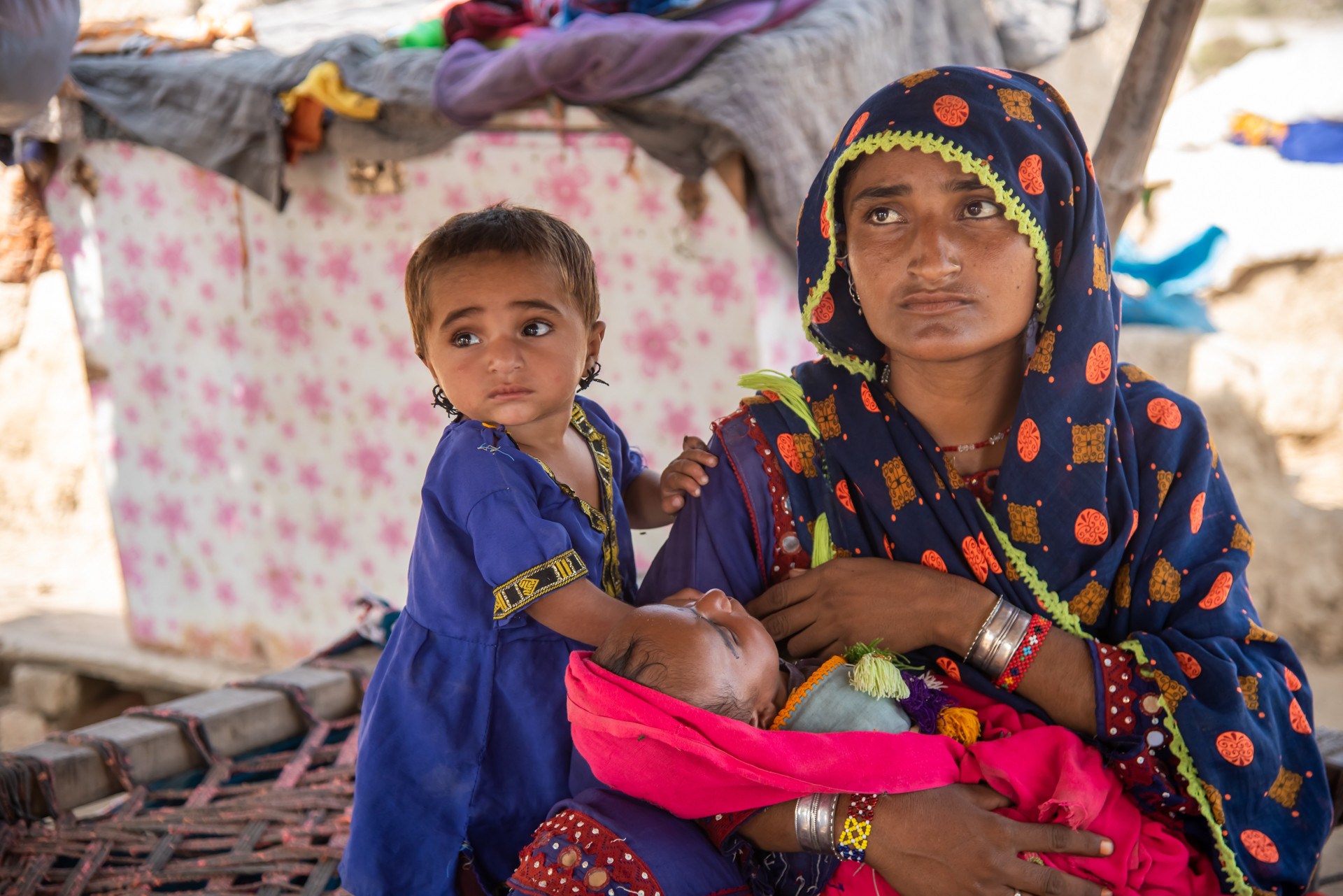
Photo: IOM Pakistan 2022/Muhammad Zeeshan Siddiqui
"I'm filled with worries about the world my children will inherit, given the constant destruction of our village by floods," Gul Khatoon expressed. She was seven months pregnant when the devastating floods hit in 2022, displacing her from her village. She ended up giving birth in a makeshift roadside shelter without any medical assistance or proper care.
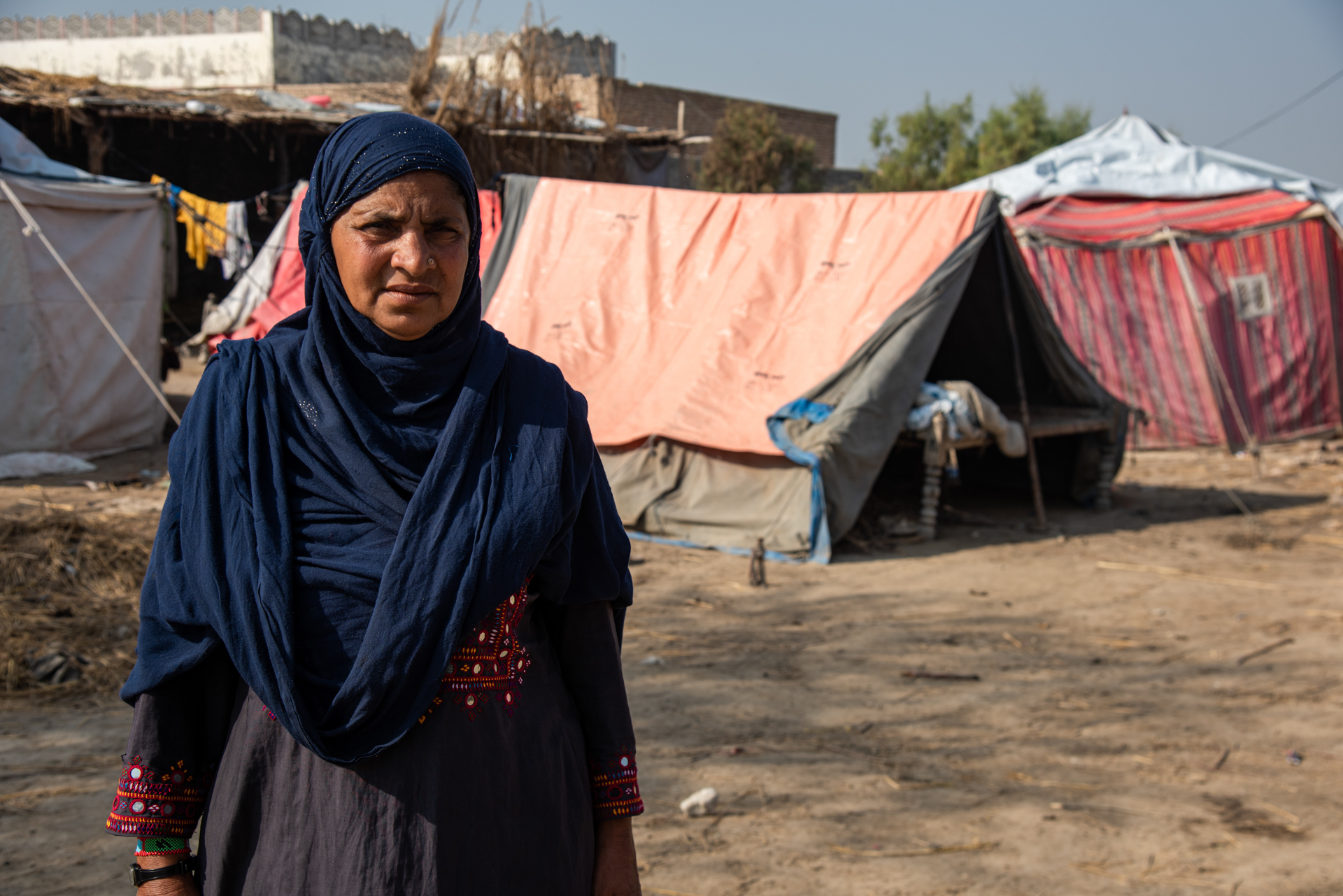
Photo: IOM Pakistan 2023/Muhammad Zeeshan Siddiqui
"Before the floods, I could afford to buy whatever I wanted for my little girls – henna, shoes and clothes. But now, I can't get them anything. I don't know when things will return to normal. Even when they do, it’s only a matter of time before we face adversity again,” shared Abida, a single mother of five children.
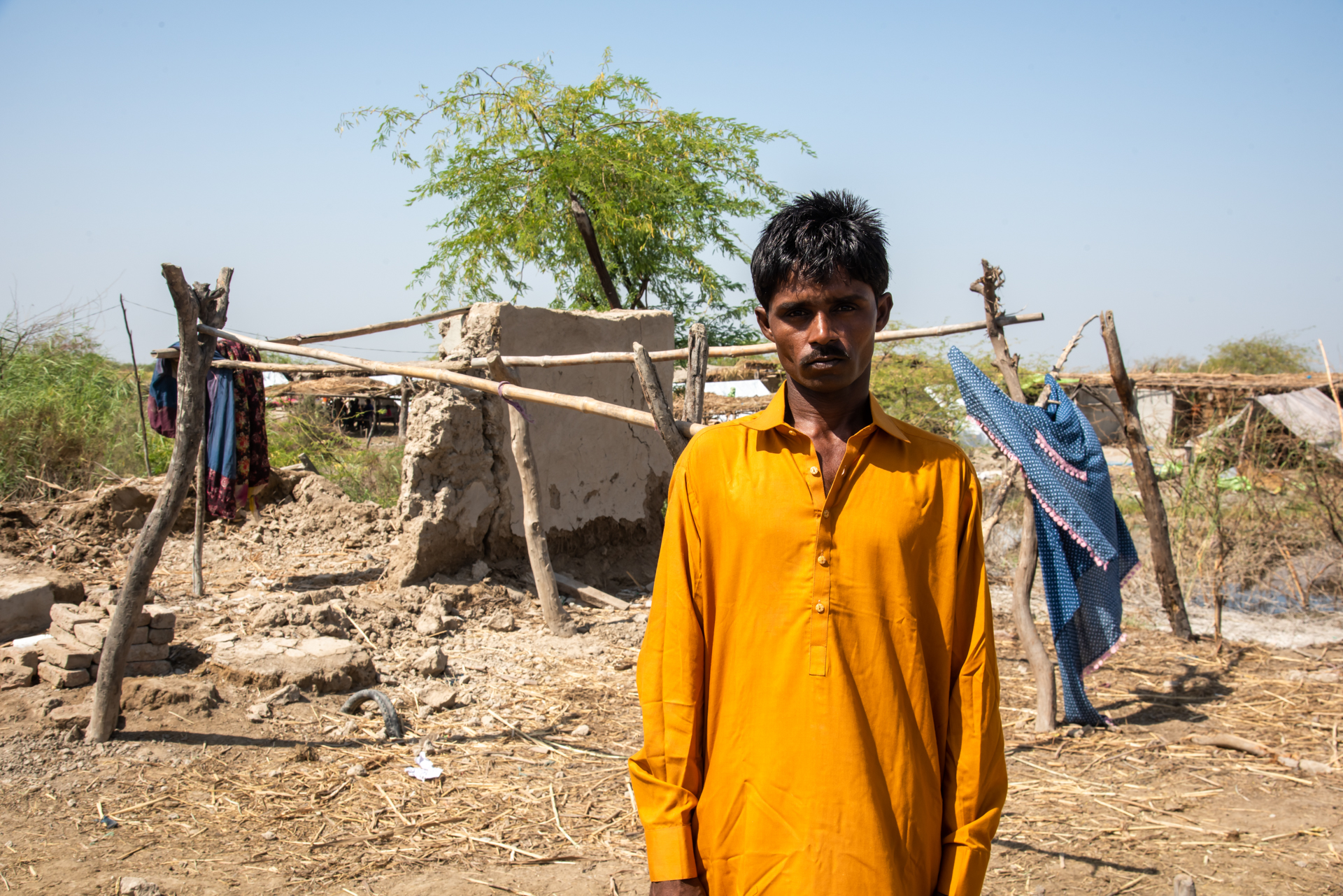
Photo: IOM Pakistan 2023/Muhammad Zeeshan Siddiqui
"Rebuilding is meaningless if I have to do it over and over again." Arjun recounts how his house in district Badin has been completely destroyed thrice due to the floods. The constant cycle of destruction and rebuilding has left him feeling anxious and overwhelmed.
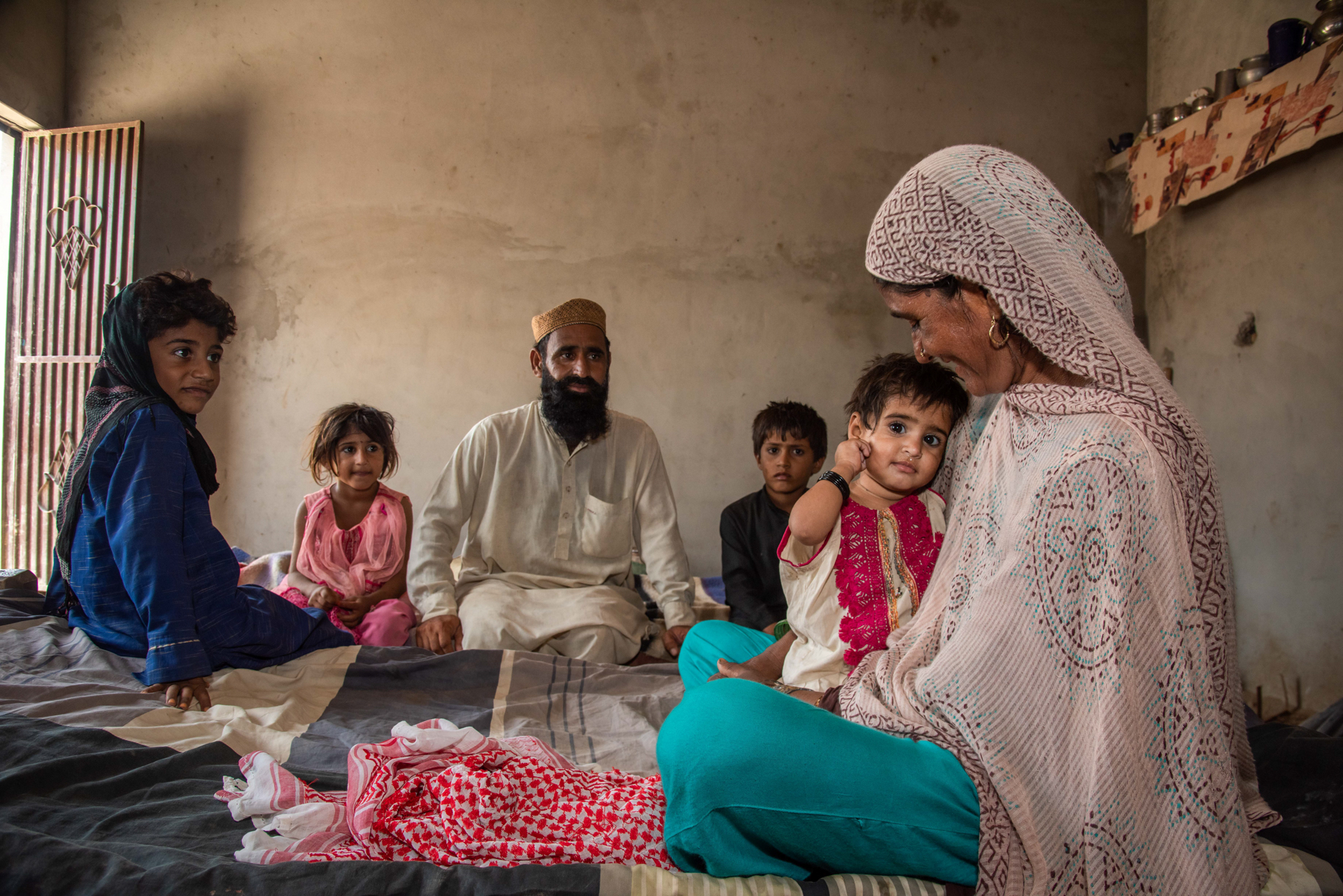
Photo: IOM Pakistan 2023/Muhammad Zeeshan Siddiqui
“We are poor. Our home was completely destroyed by the floods. I would not have had the financial means to rebuild the house had it not been for IOM’s support,” explained Qari Saeed, echoing the sentiments of many in his village in D.I. Khan, in the north-western region of Pakistan. They fear being trapped in a cycle of vulnerability, and while some were able to build back better, many are concerned about having to repeatedly rebuild their homes only to see them washed away again by the floods.
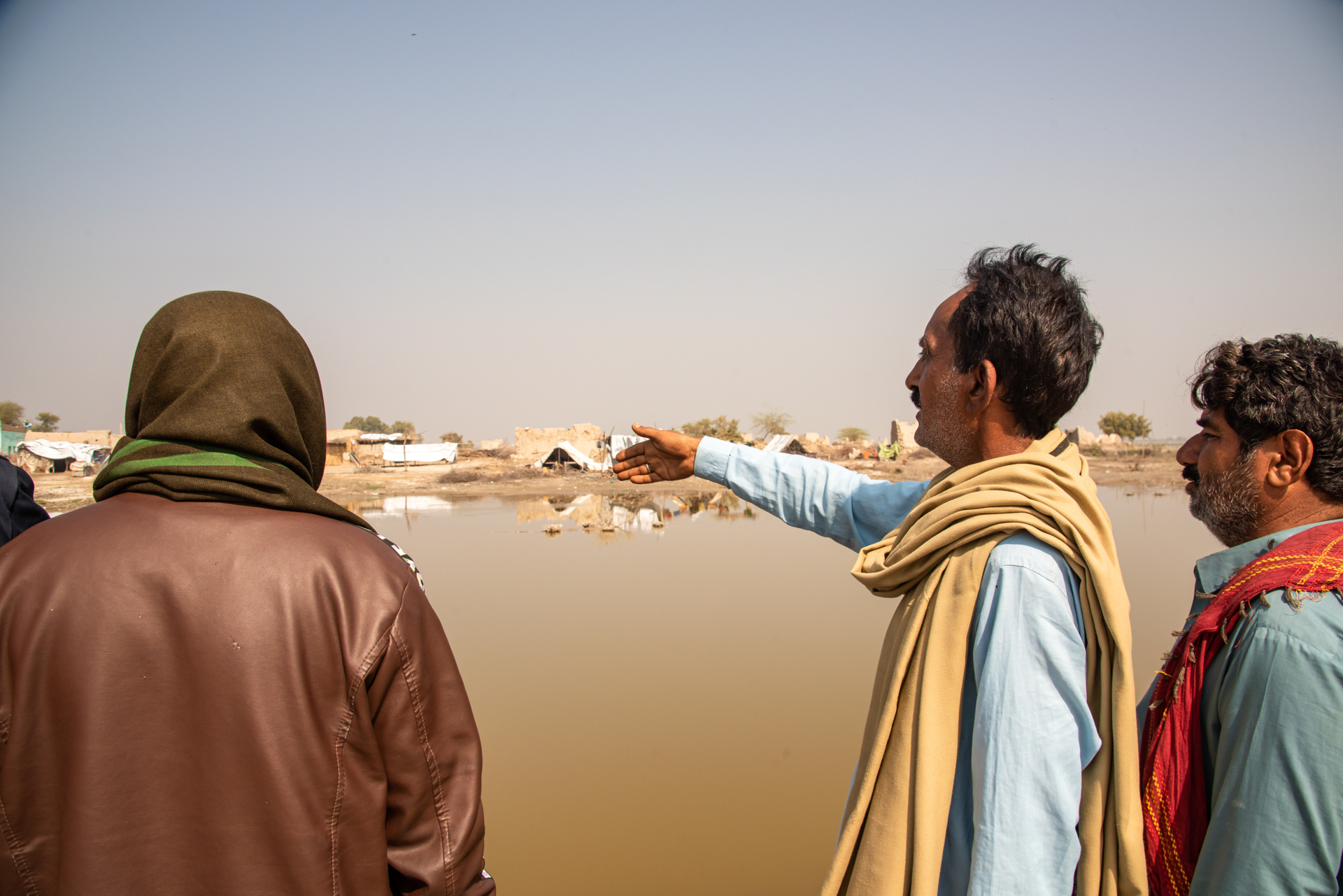
Photo: IOM Pakistan 2023/Muhammad Zeeshan Siddiqui
"Our village was once thriving, but now it lies in ruins. Our land, once fertile, has been devastated. We can only hope that divine intervention will protect us from the relentless onslaught of these unforgiving rain patterns. Our fate hangs in the balance," reflected the community elders in district Shikarpur as they surveyed the remnants of their village.
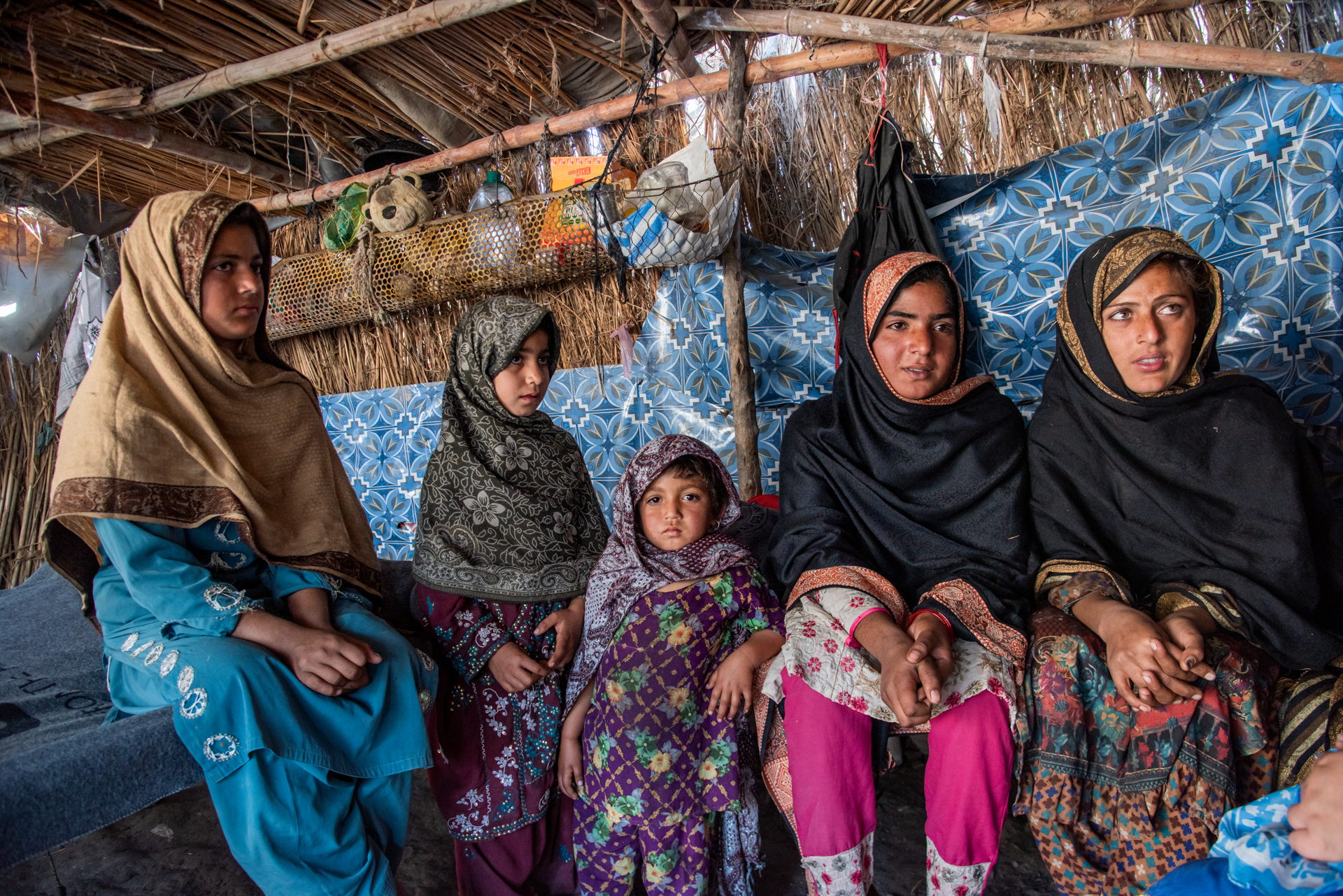
Photo: IOM Pakistan 2023/Muhammad Zeeshan Siddiqui
"Some days, my back aches so much from lifting water that I can barely move. With each step, I wonder what it will be like if I have to keep doing this for the rest of my life," Sania, who is 15, walks several miles each day along with her cousins to collect clean drinking water. This grueling task is both physically and mentally excruciating.
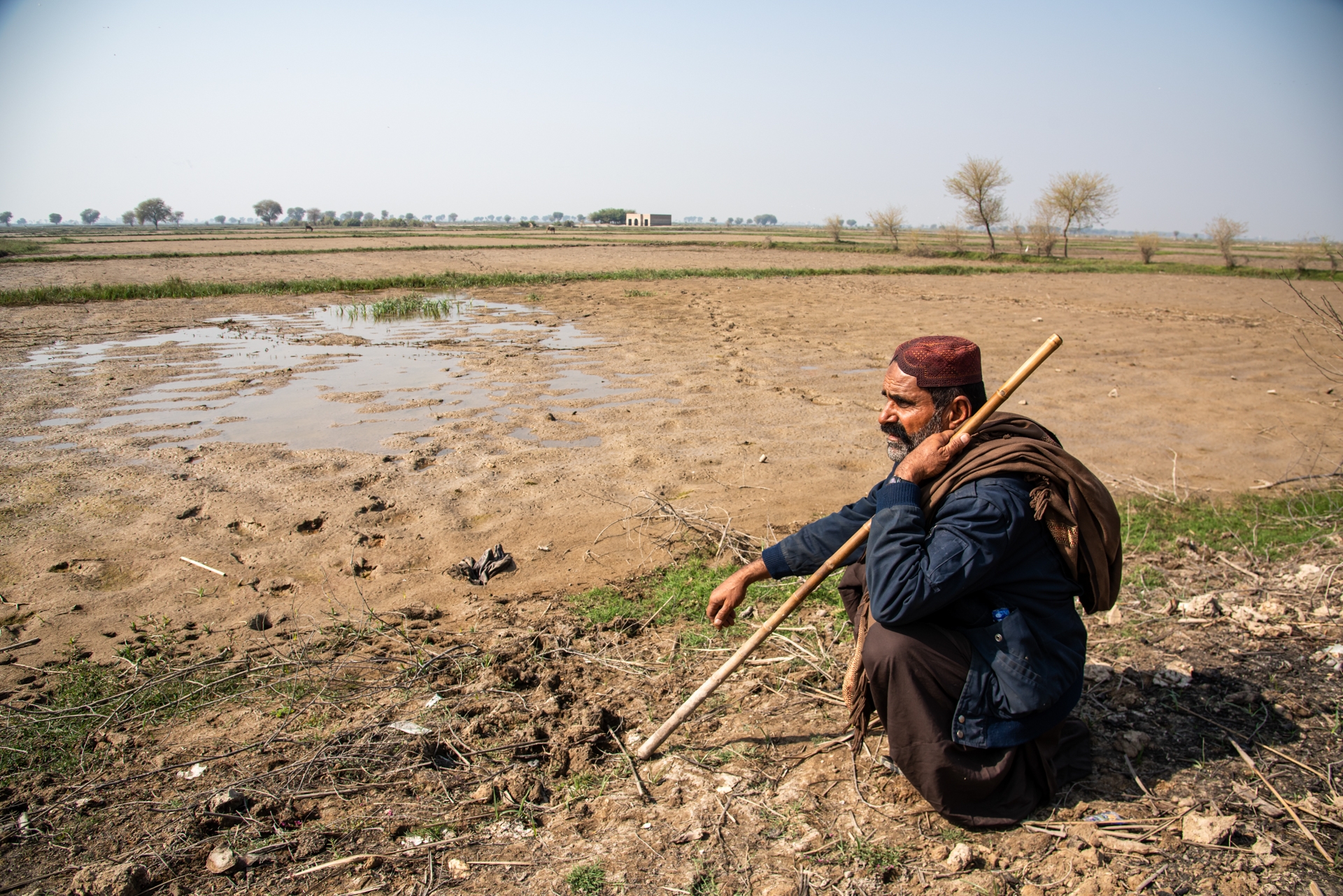
Photo: IOM Pakistan 2023/Muhammad Zeeshan Siddiqui
"As a father of eight, it's my duty to provide for my family, but I find myself powerless in the wake of these floods. If another flood comes next year, all our hard work to rebuild will go to waste," Ali Bux reflects sadly as he witnesses his once fertile land crumbling.
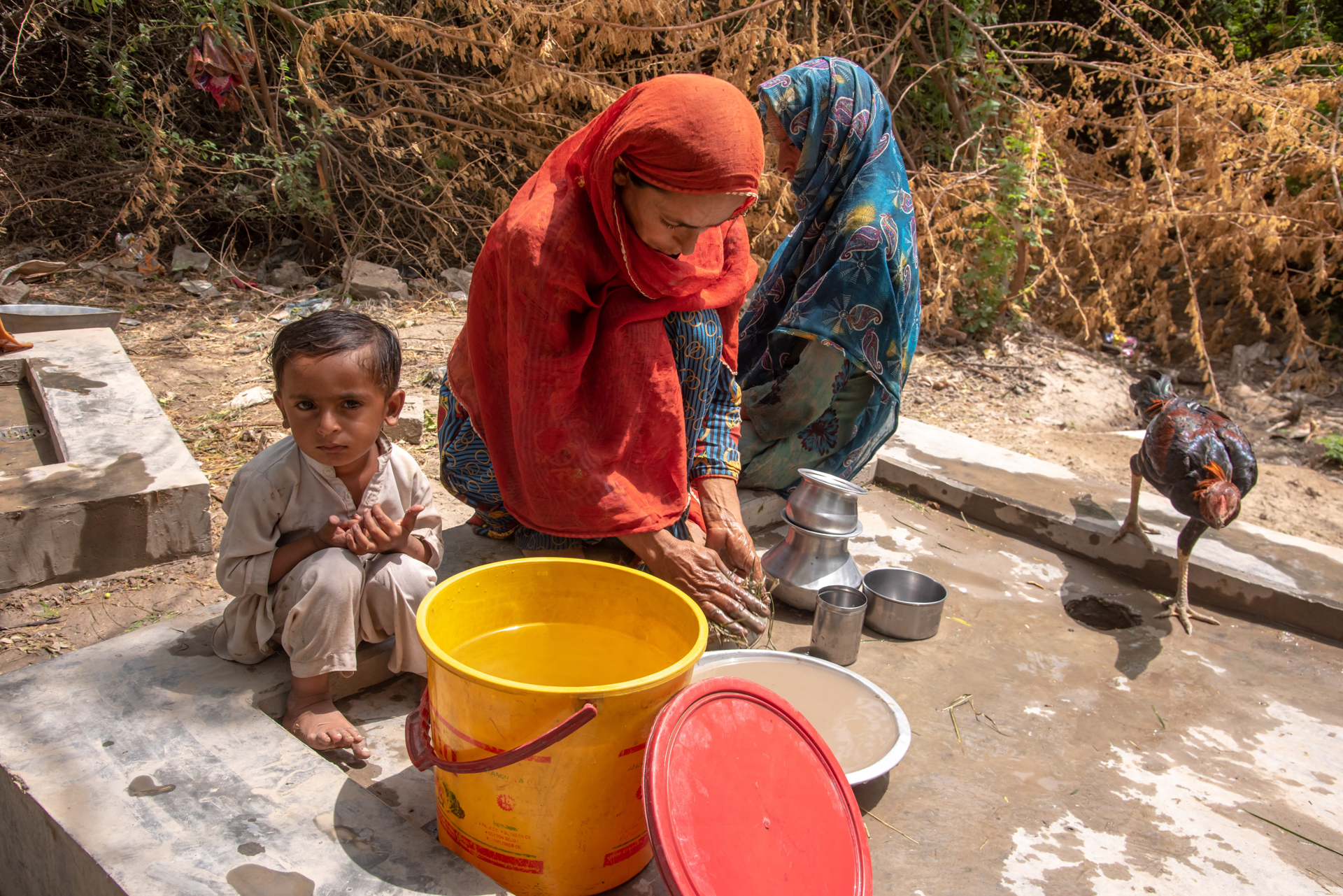
Photo: IOM Pakistan 2023/Muhammad Zeeshan Siddiqui
For several weeks, four-year-old Ali cried in fear that he might get bitten by a snake during the nights they spent in a roadside shelter following the floods. This year, on Eid, he prayed for a red bike and a dry monsoon season. Concerns about future floods and their consequences weigh heavily on the minds of the children, just as they do on their parents'.
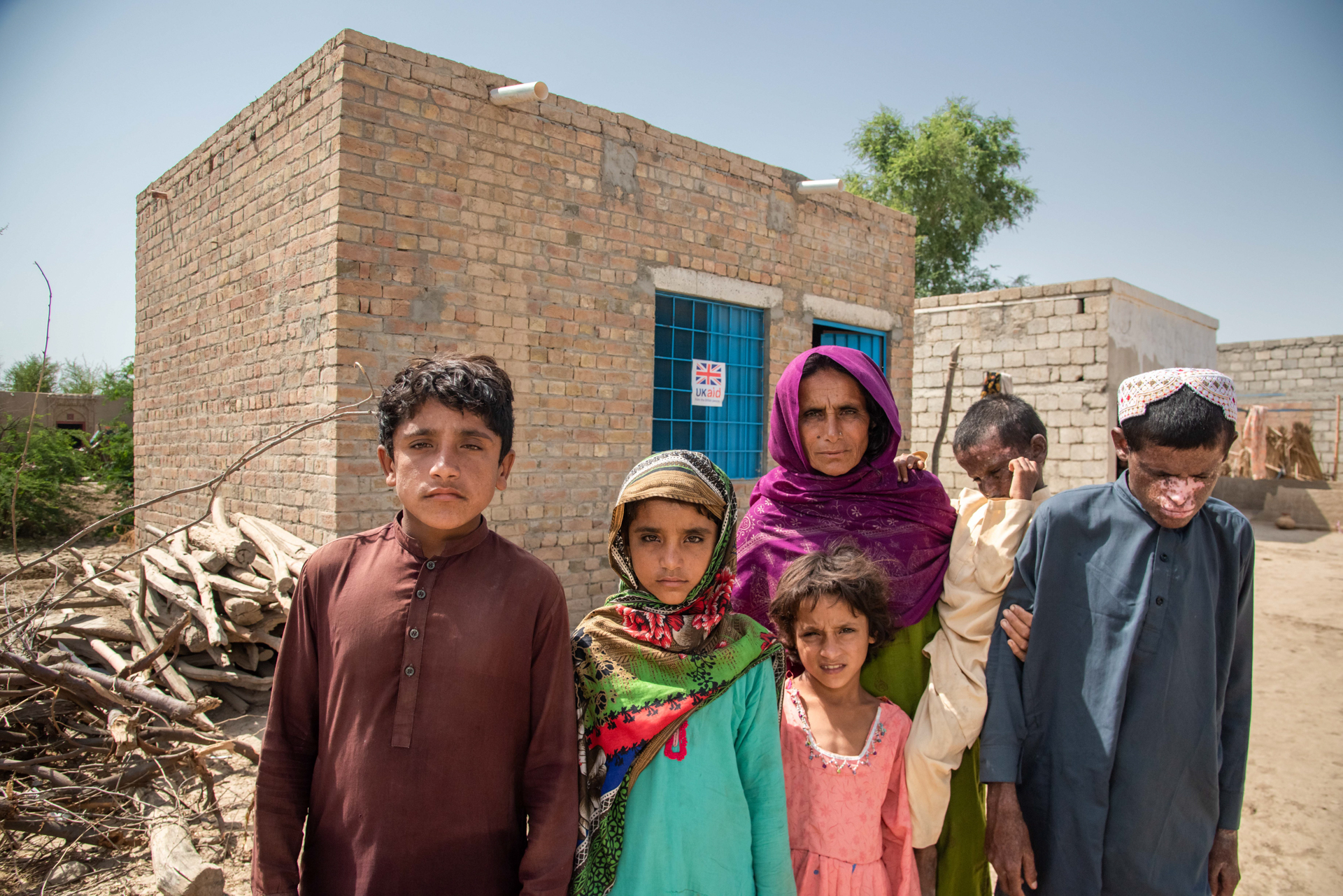
Photo: IOM Pakistan 2023/Muhammad Zeeshan Siddiqui
Responsible for her six children, two of whom have disabilities, and with her husband having passed away six years earlier, Fatima Bibi worries about her children's future, especially when she will not be there to care for them forever in the event of recurring floods.
This story is written by Maha Akbar, Communications Officer, IOM Pakistan.
